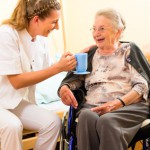A stroke can drastically change the life of a loved one—and it often places families in a new caregiving role that requires emotional strength, practical knowledge, and a long-term commitment. In Canada, stroke is a leading cause of disability among adults, and recovery is a journey that involves not just the survivor but their entire support system.
 Understanding the Impact of Stroke on Daily Life
Understanding the Impact of Stroke on Daily LifeStroke survivors may experience a variety of long-term effects, including:
Recovery is not linear. Support from family members plays a key role in helping stroke survivors regain confidence and independence.
Ask questions regarding retirement homes to our experts
The table below summarizes the most effective strategies for family caregivers:
| Support Strategy | Description | Why It’s Important |
|---|---|---|
| Educate Yourself About Stroke | Learn about symptoms, treatments, and rehabilitation | Improves communication with doctors and helps anticipate needs |
| Encourage Rehabilitation | Support participation in physiotherapy, speech therapy, or occupational therapy | Helps maximize physical and cognitive recovery |
| Adapt the Home Environment | Install grab bars, ramps, and other accessibility aids | Reduces risk of falls and boosts independence |
| Monitor Emotional Health | Watch for signs of depression, anxiety, or withdrawal | Emotional support is essential for long-term recovery |
| Be Patient and Positive | Offer encouragement, even during setbacks | Boosts motivation and reduces feelings of frustration or failure |
| Take Care of Yourself | Join caregiver support groups and take breaks | Prevents burnout and maintains your ability to help |
After a stroke, your loved one may struggle with speaking or processing language. Use these communication tips:
Always include your loved one in conversations about their care to support autonomy and dignity.
Your role as a family member includes:
Establish clear communication with healthcare providers and ask questions to stay informed about your loved one’s progress.
Canadian families have access to various stroke recovery services, including:
Check with your provincial health authority for specific services in your region.
What is the best way to support a loved one after a stroke?
Offer emotional support, encourage participation in rehab, adapt the living space for safety, and stay involved in medical care planning.
How long does it take to recover from a stroke?
Recovery times vary widely depending on stroke severity, age, and therapy. Some improve within weeks, while others may take months or years.
Can stroke survivors return to normal life?
Many stroke survivors can return to daily activities with proper rehabilitation, though they may need assistance or adaptive strategies.
What should I avoid doing when helping someone after a stroke?
Avoid doing everything for them—encourage independence. Also avoid rushing communication or minimizing their emotional struggles.
Are there financial supports for caregivers in Canada?
Yes. The Canadian government offers programs like the Canada Caregiver Credit and Employment Insurance (EI) caregiving benefits.
What role do assisted living or retirement homes play after a stroke?
They provide daily support, medical supervision, and therapy access, offering a safe environment that eases the caregiving burden on families.
Should stroke survivors receive psychological counselling?
Yes. Mental health support can be critical, as many experience post-stroke depression, anxiety, or grief over lost abilities.
Caring for a loved one after a stroke is a journey that requires compassion, education, and resilience. By applying best practices and accessing available resources in Canada, family members can make a significant difference in their loved one’s recovery and overall well-being. At the same time, it’s essential for caregivers to care for themselves, ensuring long-term sustainability in the support they provide.
Don't hesitate to contact us at 343 309 5289. We can help you choose the right establishment for you and assist you in your search.

Find a suitable senior residence